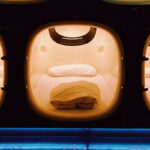Napping at Work? You’re Not Alone
“Learn from yesterday, live for today, look to tomorrow, rest this afternoon.”~Charles M. Schulz

Sleep is very important. In fact, it is one of the elements that keep our bodies running efficiently. Without sleep our bodies can’t heal and our minds can’t think properly. We can’t reach our full potential and become the people we are destined to be. Insomnia affects our mood, brain activity, memory, health, and even our ability to excel in life.
So, getting at least 7 hours of sleep each night is vital to our well-being and happiness. But, what if you can’t, for some reason, get the sleep you need to be the best version of yourself the next day? Well, that is where naps come into play. A nap, even one at work, can help you recover the sleep you’re missing.
A nap – like the one you used to take (or pretend to take) as a child, is important to survival and success. And, guess what? Naps are still en vogue – even for adults who have jobs – and even in the middle of the workday. Naps are just brief snippets of sleep taken midday – that’s all. There are no age requirements for naps.
And, the truth is approximately 33% of American adults still take a good old-fashioned nap from time-to-time. However, although, many adults praise naps as a way to de-stress and recharge, some find them inconvenient and disrupting to their normal night-time routines and sleep patterns.
But, unbeknownst to many, there are different types of naps – all serving a different purpose. A variety of factors influence how effective a particular nap can or will be. But, by learning the ins-and-outs of napping, you can determine if a work nap could be beneficial for your energy level, mood, patience, and productivity.
Content
How Long Should I Nap to Reap the Benefits?

Nap lengths vary depending on the purpose. Each time you drift off to sleep, you go through various stages of sleep. Surprisingly, researchers have found that 5-minute naps are not long enough to successfully move through these stages and experience health or sleep benefits.
As a result, researchers have concluded that the ideal napping time is 30+ minutes. Why? Because, sleeping at least 30-minutes and (up to an hour) allows your body to enter the “slow wave” or “deep sleep” stage. Not napping long enough or napping too long can leaving you feeling irritable, moody, sluggish, and mentally groggy. The effects (grogginess) of a nap that is too long or too short is referred to as “sleep inertia.”
Researchers suggests that the most effective nap is not so long that you awaken feeling sluggish and disoriented and not so short that there is no effect. Thus, most experts agree that the ideal nap last between 10 and 20 minutes. These naps are often called “power naps” because they recharge and refresh you in a short amount of time.
Note: You’ll probably need longer naps, if you are ill, highly-stressed, and/or sleep-deprived. Research suggests that children should not have nap limitations, primarily because children are still growing and need more sleep than adults. Also, understand that midday naps may make it harder for you to fall and stay asleep throughout the night.
Are There Different Types of Naps?
Yes!

The type of nap you select largely involves its intended purpose.
Listed below are the different types of naps:
- Recovery Naps: When you don’t get enough sleep at night, you are bound to feel pretty crappy the next day – tired, sluggish, irritable, moody, etc. If something prevents you from falling and staying asleep all night long, you can take a recovery nap to help you recoup some of the sleep you lost.
- Preparation Naps: If you have a big late-night event happening, you may want to take a nap in advance of it – i.e. late night date, a night on the town with friends, cramming for a next-day test or presentation, etc. This is one of the most common naps. The goal of a preparation nap is to help you “prepare” for what is to come.
- Pleasuring-Seeking Naps: Do you enjoy taking a good nap? Do you look forward to them? You are most likely seeking a pleasuring-seeking nap. People take these naps because they bring them joy.
- Compulsory Naps: Compulsory naps are incorporated into your daily routine to help you function at optimal level.
- Essential Naps: When you come down with a dreaded bug, you are more inclined to sleep more. Why? Because when you are ill your immune system is forced to work harder to combat viruses, bacteria, etc. This requires a tremendous amount of energy, which why these naps are essential or “necessary” to function at full capacity at work.
Is it Even Possible to Nap at Work?
It depends.

Some companies make it difficult to get a good midday nap in. For example, if you have a warehouse or construction, it may be almost impossible to nap at work. It may also be challenging to nap at work if you work in an academic setting as a teacher or professor, primarily because lunch and break hours are typically used to “catch up” on grading papers, meeting with students and/or planning the next lesson.
In these scenarios, there just isn’t enough time to get some shut-eye while at work, but, although, it is improbable that you’ll be able to get in regular naps at some jobs, it can be done. But sacrifices will have to be made. For instance, you may have to forfeit your lunch to nap at work, especially if you only get 30-minutes for lunch.
You’ll also need a quiet place to nap, which may be difficult if you work in a busy, crowded, or noisy environment. Even getting to your vehicle may be challenging if it is parked a long distance form your current location. Getting to your car will eat-up some of your nap time. But, if you are so exhausted you can’t keep your eyes open – even 10 minutes may be work the effort.
The good news is that some companies are starting to see the value in napping at work. These companies are beginning to recognize that “rested” employees produce higher-quality work quicker. These employees also show up to work more frequently and tend to be more agreeable and tolerant, than the more worn-out and sleep-deprived ones. A higher production rate and better quality can lead to increased profits for companies, which some are finding is a worthwhile investment.
How Can I Get A Good Nap in at Work?
There are a variety of ways you can nap at work, such as when your boss and/or co-workers are in a meeting, when your boss isn’t looking, during lunch or breaks, and/or while waiting for your workday to begin.

Listed below are “safe” ways to get a little shut-eye while at work:
- While Others in Meetings
A great time to sneak in a short snooze is while others are away – away from the office or simply in a long meeting. With fewer people around it is easier to close your eyes and nap for a while. Just make sure no one is “watching you.” Then, set your alarm to wake you up in 10-15 minutes. If you don’t feel comfortable napping at your desk, find an empty conference room, hide-out in a bathroom stall, or go to the breakroom to nap.
- When Your Boss Isn’t Looking
Another good time to nap is while your boss is “holed-up” in his or her office. Keep in mind that this suggestion isn’t a good idea if your boss constantly or even randomly roams the aisles. Why? Because it is easier to get “caught” napping at work when you shouldn’t be. However, this tip is a winner if your boss typically stays in his or her office most of the day. All you need to “pretend to work” every 10-to-15 minutes.
- During Lunch or Breaks
If you have a longer lunch (60-minutes or more) this may be the perfect time to nap at work. Find a cozy space like an empty breakroom or conference room, turn off the lights, and lay your head down on the table. Or, go to your car, recline, turn on some soft music, and set your alarm. The good news is lunches and breaks are free to do what you want – so take this time to eat and nap.
- While Waiting to Start Your Workday
If you are the type of person who likes to get to work early, take advantage of this time by napping at work. This is an especially good time to nap if you are mostly at work by yourself and your work day hasn’t “officially” begun yet. A little early morning nap can help you prepare for the day ahead.
- In Your Car
As mentioned above, sleeping in your car is always a winner. If possible, park close to where you work and near an exit, so you can spend as little time as possible getting to it. You may also want to park in the back, away from other cars, so you won’t be disturbed during your “quiet time.”
How Can I Safeguard My Work Naps?
Listed below are ways you can protect yourself from getting “caught” napping at work:
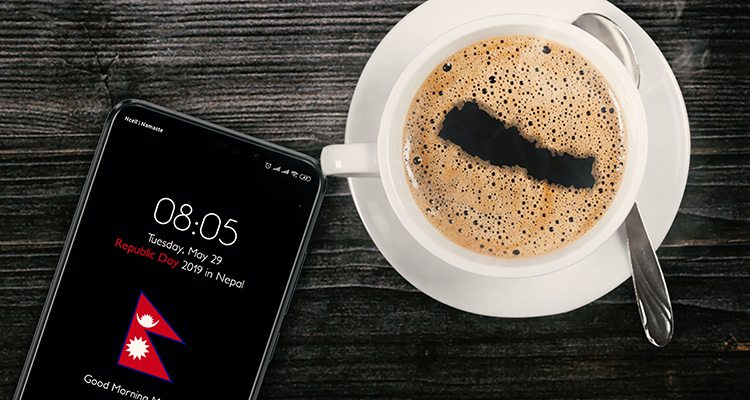
- Set an Alarm – Setting your alarm can prevent you from over-napping.
- Turn Up the Volume – Turn up the volume on your alarm and select a loud song or tone to “wake you up.” The last thing you want is to sleep through your alarm. You may also want to set your alarm to repeat until you turn it off.
- Be Smart – Be smart? Yes! In other words, know when and where to nap. Also, pay attention to who is in your orbit when you decide to nap at work. Tell a close friend what you’re about to do so he or she can keep an eye out for you.
Is Napping at Work Beneficial?
Absolutely!
Have you ever awakened only to feel as if a Mack Truck has ran you over – several times. When this feeling occurs, it can make you not want to get up and get ready for work. Maybe, you feel this way because you had a late night or weren’t feeling your best before bed. Or, perhaps, you’ve been working long hours lately and haven’t been able to “catch up” on your sleep. Regardless of the reason, a midday nap may be what you need to get “back on track” and present your best “self” at work.
Listed below are the benefits of napping at work:
- Improved Productivity
When you feel yourself “wearing down” at work, a nap is a surefire way to re-energize. A quick work nap can also re-center your focus and concentration, so you are more productive when you become swamped with work and more patient when things don’t go as planned.
- A Refreshed Mind & Body
A “rundown” feeling can make you feel “not so fresh.” Many times, the only remedy for sluggishness is a nap. Work naps are important because they help recharge your batteries and refresh your mind and body. These naps are especially important, if you didn’t sleep well, was up late and/or are stressed, overwhelmed, overworked, or not feeling your best. A nap can also “restart” your brain when it starts to lag at work.
- Increased Focus & Concentration
Contrary to popular belief, napping at work can improve focus, concentration, and awareness. Remember, naps reboot your brain, so you can be more alert and productive at work. Work naps can also help you make better decisions and complete work-related tasks by deadline. In fact, researchers have found that naps can help you be more focused and attentive throughout the day.
- Mood Stability, Happiness & Stress Relief
Naps at work can lead to mood stability, happiness, and some much-needed stress relief. Fatigue can lead to moodiness, irritability, impulsivity, anxiety, depression, and anger – not to mention headaches, high blood pressure, stress eating, and a higher risk of autoimmune disorders, heart disease, and illnesses. Napping when you’re tired or overwhelmed (even while at work) can be respite for your brain.
And, guess what? Researchers have found that people who take midday naps have a higher level of cognitive function than those who rarely, if ever, take naps. They also found that midday naps not only support learning, but also help improve memory and mood, so you feel sharper and more relaxed around your co-workers. Studies suggest that while you sleep, your brain is at-work blocking high levels of cortisol, a hormone that triggers stress in the body.
- More Patience & Tolerance
Work naps can make you have more patient and tolerant when your co-workers and/or boss are “working your nerves.” Naps can also help you make better decisions and think about your actions before you do them. In other words, mini-snoozes can help you slow down so you only produce your best work. Researchers suggest that people who take afternoon naps are more equipped to handle adversity and stressful situations, as compared to those who do not take naps.
- A Lower Blood Pressure
People who take naps at work tend to have lower blood pressures. A 2007 study found that people who take afternoon naps may experience a mild drop in blood pressure. Results suggest that even the mere anticipation of a nap is enough to cause a decrease in blood pressure.
- Clearer Skin & Fewer Illnesses
Acne? Viruses? Infections? If you tend to get sick frequently and/or you tend to experience chronic acne breakouts, you may be in-need of an afternoon nap. The truth is when you don’t get enough sleep; it shows all over your face and causes your immune system to take a major hit. This can lead to reoccurring acne breakouts and illnesses.
For some, sleep deprivation can trigger under eye bags and/or flushed cheeks, while for other others; it can lead to pimples, ruddy skin, and chronic illnesses. The good news is workday snoozes can help your body repair itself, so the acne stops and your health improves.
- Enhanced Creativity
Want to be more creative at work? Take a nap. If you have a task, but don’t have any clue as how to complete it or even begin it – take a nap. Researchers have found that napping can actually improve creativity. How? Well, sleeping stimulates the part of the brain that is responsible for creativity. So, the amount of sleep you get at night can directly impact how creative you are at work the next day.
- A Stronger Memory
Taking a work nap may actually help you remember more! This is especially true, if sleep deprivation has caused you to forget work processes, steps and/or deadlines. A 2019 study found that taking a 30-60 midday nap can significantly improve your memory.
- A Lower Risk of a Heart Disease
Did you know that taking work naps can lower your risk of heart disease? It is true. A 2012 study found that people who take daytime naps are approximately 30% less likely to develop and die from coronary artery disease (heart disease). Napping can ease work stress and help regulate your circadian rhythm, so you sleep better at night and your heart stays strong and healthy.
Note: For some, napping at work may disrupt their sleep cycles, triggering insomnia, restlessness, and/or frequent wake-ups throughout the night.
Do Any Companies Support Napping at Work?
Yes!

But, keep in mind, that most companies don’t make it easy for you to nap at work. The good news is some companies do endorse napping at work and even offer “nap pods” in their offices. Google, Facebook, Ben & Jerry’s, Uber, Zappos, Cisco, NASA, Samsung, and Huffington Posts are just some of the companies that support napping at work.
Are Nap Pods Actually a “Thing?”
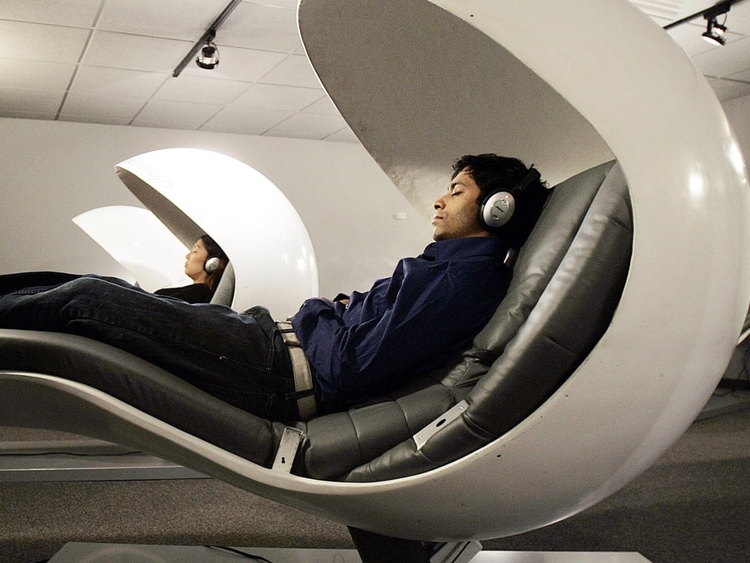
Nap pods are definitely a “thing” in some companies.
Although most companies still frown on napping at work, others are starting to embrace this trend in an effort to boost workplace morale, increase productivity, and improve quality. MetroNaps offers companies interested in improving morale, production, and quality, a viable solution – EnergyPod. EnergyPods are nap pods that provide employees with an ability to nap during lunches and breaks. The best thing about nap pods are they remove the fear of being caught “sleeping on the job.”
According to 2015 study, approximately 38% of Americans experience poor energy and sleep and/or moderate-to-severe fatigue while at work. Researchers also found that sleep deprivation can also lead to accidents (i.e. car accidents, falls, critical mistakes at work, etc.).
What is a Nap Pod?
A nap pod is basically a cozy chair with an attached shade that blocks-out light and minimizes noise and other distractions. MetroNap’s EnergyPod is a stand-alone nap pod that also offers soft music and groundbreaking technology to create a comforting sleeping experience. Its ergonomic design lifts your legs, while relaxing your lower back to accommodate an individual who is “tied” to his or her desk most of the day. The EnergyPod’s built-in speakers and soothing sounds help drown-out noise, light and other distractions, so you can take a peaceful 10-to-20 minute nap.
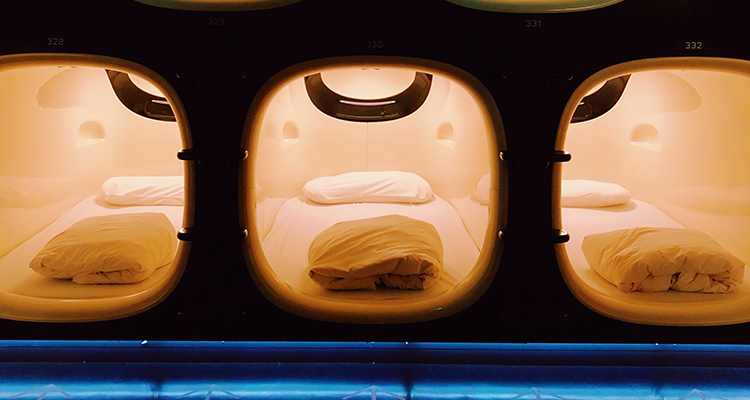
The goal of nap pods, in general, is to help employees get the rest they need to not only function at an optimal level, but also produce quality work. That is why most experts agree that nap pods are not only the wave of the future, but also a good way to help employees produce top-notch work. Research suggests that employees who take afternoon naps are more productive than those who do not.
Note: Nap pods are not designed for lengthy sleep times. Rather, they are meant to quickly recharge your mind and body, so you can return to work feeling refreshed and ready to work.
What if it is Impossible for Me to Take a Work Nap? Are There Other Alternatives?
Yes, sleep programs.
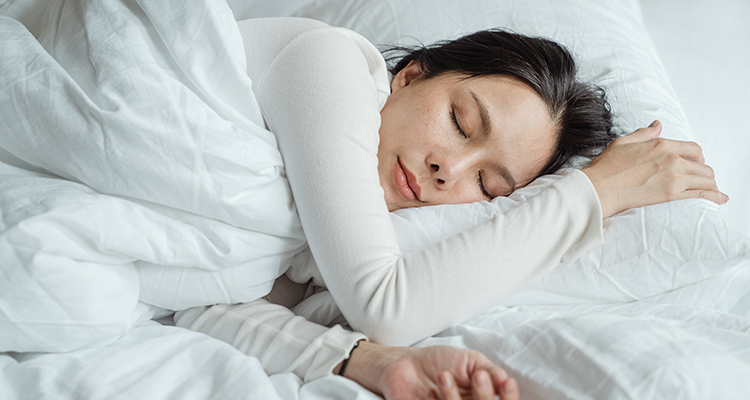
When you don’t sleep well at night, it can affect your whole day. However, a 2016 study found that sleep programs can significantly reduce “sleeplessness,” improve sleep quality, and increase next-day energy and cognitive function. These sleep aids can also put you in a better mood and increase your patience. FYI: You produce better quality work at a faster pace when you are well-rested.
But what if it is impossible to nap at work? Then, it is imperative that you get adequate sleep at night. This is where sleep programs can help.
One program that can help you stay on your A-game at work is Somnus Therapy. Somnus Therapy is a highly-effective sleep program that uses cognitive-behavior strategies to teach you how to naturally fall asleep, stay asleep throughout the night, and awaken feeling refreshed and re-energized the next morning.
Sleep programs, like Somnus Therapy, rely on cognitive-behavioral therapy for insomnia (CBT-I) techniques (i.e. sleep sounds, guided meditations, stimulus control therapy, developing healthy sleep habits and consistent bedtime routine, awareness and acceptance, mindfulness, cognitive restructuring or reframing, etc.) to help you develop healthy sleep habits and address psychological factors that could be preventing you from getting the rest you need.
The goal of sleep programs is to calm your “racing mind,” so you can get some much-needed zzz. More specifically, they aim to help you get proper sleep at night, so you don’t feel disoriented, sluggish, exhausted, or confused at work. Because, if you get proper rest at night, you won’t need midday naps to excel at work.
Summary
Napping on the job is still considered taboo in many workplaces; however, this perception is slowly changing. Big conglomerates like Facebook and Google offering nap pods to employees and the hope is that more companies will follow their heed and start taking more of an interest in their employees’ health and well-being.

Sleep-deprived, stressed, ill, and/or overwhelmed employees are costly to the company, so it just makes sense to ensure they are well-rested. Studies suggest that midday work naps can improve mood, focus, alertness, attitude, decision-making skills, and performance – all the elements needed to make a company successful. And, even though, lengthy naps are still considered a “no-no” at most companies, getting a little shut-eye during lunch or while on break can help you remain alert and prepared for whatever life – and your job throws at you!
References
- Brooks, A. & Lack, L. (2006). A brief afternoon nap following nocturnal sleep restriction: which nap duration is most recuperative? Sleep, 29(6), 831-40. Retrieved from https://pubmed.ncbi.nlm.nih.gov/16796222/
- Hilditch, C. J., Centofanti, S. A., Dorrian, J., & Banks, S. (2016). A 30-minute, but not a 10-minute nighttime nap is associated with sleep inertia. Sleep, 39(3), 675-85. Retrieved from https://pubmed.ncbi.nlm.nih.gov/26715234/
- Dietrich, S. K., Francis-Jimenez, C. M., Knibbs, M. D., Umali, I. L., & Truglio-Londrigan, M. (2016). Effectiveness of sleep education programs to improve sleep hygiene and/or sleep quality in college students: a systematic review. JBI Database System Rev Implement Rep, 14(9), 108-134. Retrieved from https://pubmed.ncbi.nlm.nih.gov/27755323/
- Taylor, P. (2009). Nap time. Pew Research Center. Retrieved from https://www.pewresearch.org/social-trends/2009/07/29/nap-time/
- Sleep Advisor. (2020). 9 different nap types – Which one is good for you? Retrieved from https://www.sleepadvisor.org/types-of-naps/#:~:text=Different%20Types%20of%20Naps.%201%20CEO.%20Also%20called,night%20out%20on%20the%20town%2C%20…%20More%20items
- Sleep.org. (2021). What is a power nap? Retrieved from https://www.sleep.org/what-is-a-power-nap/
- Larson, J. & Watson, S. (2020). How to deal with sleep inertia, that groggy feeling when you wake up. Healthline. Retrieved from https://www.healthline.com/health/sleep/how-to-deal-with-sleep-inertia
- Lovato N & Lack L. (2010). The effects of napping on cognitive functioning. Prog Brain Res., 185, 155-66. Retrieved from https://pubmed.ncbi.nlm.nih.gov/21075238/
- Leproult R, Copinschi G, Buxton O, & Van Cauter E. (1997). Sleep loss results in an elevation of cortisol levels the next evening. Sleep, 20(10), 865-70. Retrieved from https://pubmed.ncbi.nlm.nih.gov/9415946/
- University of California – Berkeley. (2010). Midday nap markedly boosts the brain’s learning capacity. Science Daily. Retrieved from https://www.sciencedaily.com/releases/2010/02/100221110338.htm
- Wadley, J. (2015). Sleeping on the job? Actually, that’s a good thing. University of Michigan News. Retrieved from https://news.umich.edu/sleeping-on-the-job-actually-that-s-a-good-thing/
- Lewis, P. A., Knoblich, G. & Poe, G. (2018). How memory replay in sleep boosts creative problem-solving. Trends in Cognitive Sciences, 22(6), P491-503. Retrieved from https://www.cell.com/trends/cognitive-sciences/fulltext/S1364-6613(18)30070-6?_returnURL=https%3A%2F%2Flinkinghub.elsevier.com%2Fretrieve%2Fpii%2FS1364661318300706%3Fshowall%3Dtrue
- American Physiological Society. (2007). Expecting an afternoon nap can reduce blood pressure. Science Daily. Retrieved from https://www.sciencedaily.com/releases/2007/10/071015081435.htm
- Mayo Clinic. (2021). Insomnia. Retrieved from https://www.mayoclinic.org/diseases-conditions/insomnia/symptoms-causes/syc-20355167
- Center for Disease Control and Prevention (CDC). (2021). How does sleep affect your heart health? Retrieved from https://www.cdc.gov/bloodpressure/sleep.htm
- Stang, A., Dragano, N., Moebus, S., Möhlenkamp, S., Schmermund, A., Kälsch, H., Erbel, R., Jöckel, K. H., & Heinz Nixdorf Recall Investigative Group (2012). Midday naps and the risk of coronary artery disease: Results of the Heinz Nixdorf Recall Study. Sleep, 35(12), 1705–1712. Retrieved from https://doi.org/10.5665/sleep.2248
- Cousins, J. N., Wong, K. F., Raghunath, B. L., Look, C., & Chee, M. (2019). The long-term memory benefits of a daytime nap compared with cramming. Sleep, 42(1), zsy207. Retrieved from https://doi.org/10.1093/sleep/zsy207
- Edelheit, J. (2021). Employers are waking up to the benefits of sleep pods. Corporate Wellness Magazine. Retrieved from https://www.corporatewellnessmagazine.com/article/employers-waking-benefits-sleep-pods
- Sadeghniiat-Haghighi, K., & Yazdi, Z. (2015). Fatigue management in the workplace. Industrial Psychiatry Journal, 24(1), 12–17. Retrieved from https://doi.org/10.4103/0972-6748.160915
- Ru T, Chen Q, You J, Zhou G. (2019). Effects of a short midday nap on habitual nappers’ alertness, mood and mental performance across cognitive domains. J Sleep Res., 28(3), e12638. Retrieved from https://pubmed.ncbi.nlm.nih.gov/29160010/








